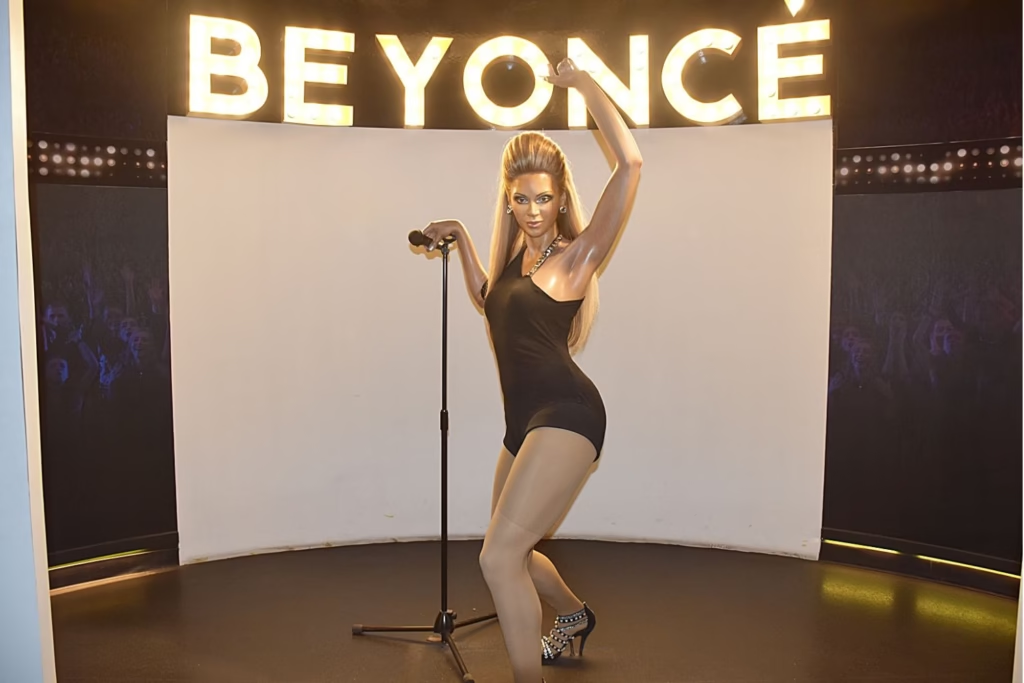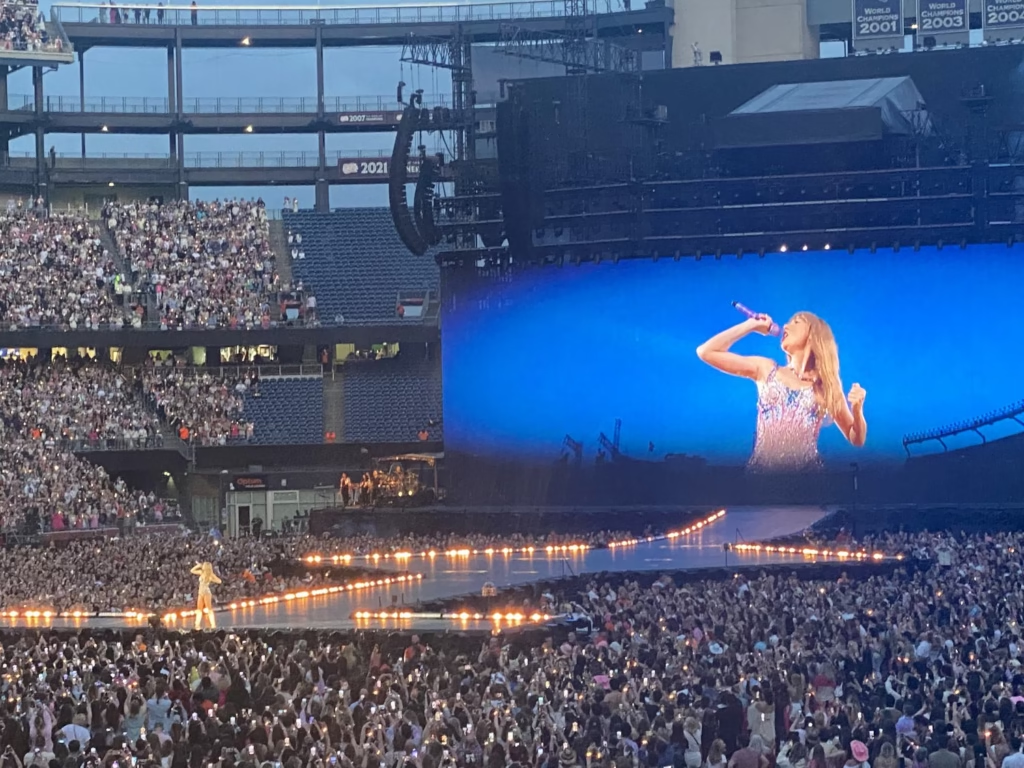
In an era where culture and politics increasingly intersect, few artists have navigated this confluence with as much influence as Beyoncé. As we delve into “Beyoncé’s Cultural Impact vs. Political Events: A Modern Perspective 2025,” we explore how her artistic expressions not only resonate with but also shape the political landscape of our time. This blog aims to juxtapose the monumental cultural influence of Beyoncé with the pivotal political events that have marked the beginning of this decade, offering a nuanced look at how these domains interact, influence, and sometimes even redefine each other.
By 2025, Beyoncé has solidified her status not only as a musical icon but also as a cultural force whose work comments on, challenges, and inspires political discourse. From her performances to her visual albums, each project has layers of social commentary, making her an emblematic figure in discussions about race, gender, justice, and empowerment. As we look at her journey, we’ll contrast these cultural phenomena with the political milestones of the recent years – elections, social movements, and policy shifts – to understand the symbiotic relationship between art and activism.
This exploration is not just about comparing impact; it’s about understanding how Beyoncé’s art has become a vehicle for political expression and change, how her influence has mobilized communities, and how the political climate has, in turn, been both a backdrop and a catalyst for her work. Through this analysis, we aim to appreciate the complex tapestry of our modern world where cultural icons like Beyoncé can be as instrumental in shaping public opinion and policy as the political events themselves.
Black Lives Matter gaining momentum
Beyoncé’s performance at the Super Bowl 50 Halftime Show in 2016 was indeed a pivotal cultural and political moment. By debuting “Formation,” a song rich with themes of black pride, heritage, and protest against systemic racism, Beyoncé transformed the halftime show into a platform for social commentary.
The context of this performance was particularly significant as it aligned with a period of intense social unrest and activism around racial issues. The Black Lives Matter movement, which began in 2013 following the acquittal of Trayvon Martin’s killer, had by 2016 gained significant national and international attention, especially after high-profile cases of police violence against African Americans. Beyoncé’s “Formation” performance came at a time when these discussions were at the forefront of public and media discourse, contributing to a broader conversation about race, power, and resistance in America.
Her choice to make such a statement during one of the most watched television events of the year amplified these messages to an audience of millions, influencing public perception and prompting reactions from both supporters and critics.
Lemonade : Black Feminism
Beyoncé’s “Lemonade,” released in 2016, was not just an album but a visual narrative that became a cultural phenomenon. It’s celebrated for its bold artistic approach, using a mix of music, poetry, and film to explore themes of black womanhood, infidelity, forgiveness, and empowerment.
“Lemonade” was interpreted as a bold statement on feminism, specifically black feminism, which addresses the unique challenges faced by black women concerning both gender and racial discrimination. The album’s explicit references to figures like Warsan Shire, whose poetry was woven into the narrative, and the inclusion of mothers of victims of police brutality in the “Freedom” video, underscored a commitment to these themes.
By highlighting stories of black women’s experiences, Beyoncé challenged mainstream narratives about beauty, success, and power. The album’s exploration of infidelity and healing also spoke to broader discussions about relationships, autonomy, and the societal roles women, especially black women, are expected to fulfill.
Black Voter Day
After the murder of George Floyd in May 2020, which reignited global calls for racial justice and police reform, Beyoncé leveraged her immense cultural influence to promote civic engagement. She partnered with initiatives like the Black Voter Day in 2020, encouraging her fans to get involved in the electoral process. Through her platforms, including social media and performances, she emphasized the importance of voting, particularly among communities of color, which have historically faced barriers to voting.
The 2020 U.S. election saw one of the highest voter turnouts in recent history, with a particular increase in participation from demographics that had been the focus of these drives, including black, Latino, and young voters. While it’s challenging to attribute this solely to any single campaign or celebrity endorsement, the collective impact of high-profile figures like Beyoncé, combined with grassroots organizing, undoubtedly played a role.
Beychella and Homecoming
Beyoncé’s performance at Coachella in 2018, famously known as “Beychella,” and later documented in the Netflix special “Homecoming,” was a landmark moment in music and cultural history. The show was a celebration of black culture, specifically highlighting the traditions and significance of Historically Black Colleges and Universities (HBCUs). Featuring a band, majorette dancers, and a nod to fraternities and sororities, Beyoncé’s performance was not just entertainment but a tribute to black academic and cultural excellence. This redefined what festival performances could be, turning Coachella into a platform for cultural storytelling and education.
By using her platform to celebrate and educate about black culture and education, Beyoncé engaged in a form of political activism. Her performance was a statement on the need for cultural acknowledgment and the fight for equitable educational opportunities. It resonated with those advocating for racial justice, educational equity, and the preservation and promotion of black cultural heritage.
Black Is King
“Black Is King,” released on Disney+ in 2020, was a visual album and film project by Beyoncé, drawing heavily from the music of “The Lion King: The Gift.” It was a profound celebration of African heritage, identity, and creativity, challenging mainstream narratives by reimagining the story of “The Lion King” through an African lens. The project was rich with symbolism, showcasing African fashion, music, dance, and art, thereby promoting a narrative of black excellence, pride, and cultural richness. “Black Is King” was lauded for its artistic vision, its reclamation of African stories, and for providing a platform where black culture was not just represented but celebrated in all its diversity.
By showcasing African culture in a way that was accessible to a global audience, “Black Is King” fostered a sense of solidarity and understanding across cultures, supporting the idea that cultural representation is a significant aspect of fighting for racial equity and justice.
Environmental Activism Through Music
Beyoncé has leveraged her significant cultural influence to address climate change, most notably through the song “Spirit” from “The Lion King: The Gift” soundtrack. “Spirit” serves as both an anthem and a call to action, with lyrics that evoke themes of nature, renewal, and the interconnectedness of all things, which can be interpreted as a nod to environmental concerns. The song, coupled with its visuals in the film and related promotional materials, brings attention to the beauty and fragility of our planet, encouraging listeners to reflect on their relationship with the environment. This approach uses music’s universal appeal to engage audiences on environmental issues, making climate change more accessible and emotionally resonant.
Formation and LGBTQ
Beyoncé has demonstrated her support for the LGBTQ+ community through various avenues, significantly impacting cultural perceptions: Songs like “Formation” feature elements of ballroom culture and include collaborations with queer artists like Big Freedia, bringing visibility to black queer culture within mainstream music. This not only celebrates but also educates audiences on the rich diversity within the community. Beyoncé has made supportive statements at high-profile events, including dedicating performances to the victims of the Pulse nightclub shooting and speaking out against discrimination. Her visibility at events like the GLAAD Media Awards, where she was honored for her allyship, further cements her role as an advocate.
Her support was particularly notable around the time of the U.S. Supreme Court’s decisions on marriage equality. In 2015, when the Obergefell v. Hodges decision legalized same-sex marriage nationwide, Beyoncé’s public stance and music helped frame the moment within a broader cultural context of acceptance and love.
Renaissance and Dance Culture
Beyoncé’s “Renaissance” album, released in 2022, is a profound homage to dance music, with a particular focus on its black and queer origins. Here’s how it made an impact: “Renaissance” dives into genres like house, disco, and techno, acknowledging the black and queer pioneers who shaped these sounds but were often overlooked in mainstream narratives. By integrating samples, collaborations, and nods to these artists, Beyoncé brings their stories and contributions to a broader audience.
The album not only celebrates dance music but also the ballroom culture, drag, and the black queer community’s role in it. This is evident in tracks like “Pure/Honey” and “Break My Soul,” which incorporate elements of voguing and ballroom lingo, thereby mainstreaming these expressions of identity and culture.
Promotion of Black Designers
Beyoncé has been instrumental in promoting black designers and creatives. Her choice to wear designs from black-owned labels, like those by Olivier Rousteing for Balmain or the work of LaQuan Smith, elevates these designers on a global stage, providing them with visibility and economic opportunities that might otherwise be limited by systemic biases in the fashion industry.
Her choices in fashion also speak to the broader issue of representation in an industry known for its lack of diversity both in front of and behind the camera. By showcasing and supporting black designers, models, and stylists, she pushes for a more inclusive representation in fashion narratives, which is inherently political as it challenges the status quo of the industry.
Through her fashion choices, Beyoncé educates her audience about different cultural heritages and the importance of preserving cultural identity. This aspect of her influence aligns with movements advocating for cultural preservation and against the dilution or misrepresentation of cultural symbols in fashion.
Conclusion
Beyoncé’s cultural impact is not just in the music she creates or the performances she delivers; it’s in how she intertwines these with political narratives, enhancing, critiquing, or directly engaging with them. Her work often acts as a cultural mirror to political events, reflecting, shaping, and sometimes leading public discourse.
While political events set the stage for systemic changes, cultural icons like Beyoncé can mobilize public sentiment, challenge norms, and bring issues from the margins to the center. The interplay between Beyoncé’s cultural contributions and contemporary political events illustrates a symbiotic relationship where each can amplify or even challenge the other’s influence, demonstrating that culture is as powerful a force for change as any political event.
In a world where policy can be slow or divisive, cultural figures like Beyoncé offer a swift, broad-reaching platform for advocacy, education, and inspiration, proving that the arts are not just about entertainment but about echoing, shaping, and sometimes leading societal transformations.
- How ‘Greetings From Your Hometown’ Reflects the Jonas Brothers’ Wyckoff, New Jersey Roots - July 29, 2025
- Upcoming Events of British Singer Charli XCX: Feel Her in a Wedding Celebration Mood - July 25, 2025
- Carly Rae Jepsen’s E•MO•TION 10th Anniversary Concert Set for August 19 at Troubadour in West Hollywood - July 18, 2025


poop
I said ya’ll shank so bad this is poopie poop